- Home
- Tamara Leigh
Baron of Godsmere Page 7
Baron of Godsmere Read online
Page 7
Boursier straightened. “I am pleased,” he said, voice as if born of the storm outside. “But it can go worse for you.”
She knew that. Had she not survived worse and worse with Murdoch? Though that reminder was meant to strengthen her, something within her bent so deeply she feared it might snap. Head beginning to spin, she halted, causing Boursier to arrest his progress.
“I have no time for this,” he growled.
Feeling the stares of the others, she settled her gaze on the priest who stood ready to feed her words that would make of her a blasphemer.
She drew a long breath, met Boursier’s gaze. “If I do this, will you release Agatha?”
“If you do not,” he said, “your father’s lands are forfeit.”
Or so he believed.
“Do you understand, lady?”
“Aye, Lucifer,” she answered as once she had answered Murdoch, “I understand.” Just as she understood that speaking thus might draw the same punishment her husband had dispensed. By her hair and before his entire household, he had dragged her from the hall. What had happened next upon the stairs…
The fire in Boursier’s gaze razed the memory, and for a moment she was grateful.
“I am Bayard,” he said, “but if you wish the devil at your side, ’twill be no trouble to accommodate you.”
Why did he not now? Murdoch would have—even before a chapel, regardless of witnesses.
Boursier urged her forward, his far-reaching stride causing the splinter to be more deeply felt.
This eve, then, El realized. Whatever kept him from retaliation would be overcome once a bed was at her back. Squeezing her arms against her sides, she wished for a swift horse beneath her.
She blinked, glanced at Boursier. “What of our horses?”
“They are in my stables.”
And would not easily be gotten from there.
As they neared the chapel, Lady Maeve came forward. “Are you certain of this, Bayard? There is naught else to be done?”
“As already discussed, I am without choice, my lady. Thus, I must needs wed this woman so your daughter does not return to a home no longer hers.”
Tears brightened the woman’s dark brown eyes, but she jerked her chin. “You know what is best, my son.”
To El’s surprise, The Boursier squeezed his stepmother’s shoulder. “Quintin will be at your side again soon. Now, vows must needs be spoken.” He released her and drew El to where the priest waited.
Up close, the man was younger than he had appeared in the hall—a bit older than his lord, perhaps thirty and five. Though he could not be said to be attractive, his head too round and large atop a slender body, nose long and hooked, there was something captivating about his eyes despite the disapproval there.
“Proceed, Father Crispin,” Boursier said.
“My lord, surely you…” The man cleared his throat. “’Tis God’s house to which you come. Could you not don more suitable garments for the speaking of vows?”
“I could. Now marry us.”
Father Crispin’s mouth twitched as if he might argue, but he inclined his head.
Struggling to contain her trembling, El heard the drone of the man’s voice that did not seem to match the movement of his lips. And when he looked to her and spoke Thomasin de Arell’s name, she could only stare.
“You are without choice,” Boursier rasped.
“Again, Lady Thomasin de Arell,” Father Crispin said, “do you freely give yourself in marriage?”
She inclined her head. “If I must.”
Beside her, Boursier stiffened further. Before her, Father Crispin slowly shook his head. “My lord—”
“’Twill suffice, Father. Continue.”
Next came the recitation of duties she must perform as the wife of Bayard Boursier. God willing, by the time the snow lifted, she would find a way to free herself.
When he released her arm and raised her hand, El startled over his scraped and scabbed wrist that contrasted with her pale, smooth flesh.
The manacles, she realized and imagined how he must have strained to wrench them from the wall. Truly, few would fault him for whatever form his vengeance took. Not that he was undeserving of the ill he had suffered. Merely, she understood the anger of his debauched soul.
El winced over her quaking fingers, knew The Boursier felt her discomfort and took joy from it.
Lord, will I never again be warm?
Next came the vows. Boursier spoke them first, each word thick with resentment. By the time the priest turned to El, her legs were almost too weak to support her.
“Lady Thomasin,” Father Crispin began, “are you prepared to pledge your troth?”
Teeth chattering, she said, “I am.”
Boursier grumbled something and looked behind. “Squire Lucas, fetch my bride a mantle ere she shakes herself apart.”
El muffled her surprise. Why did he care? For fear she might collapse and be unable to finish her vows?
After a tense silence, the squire returned with a mantle that Boursier draped over her shoulders.
As the fur lining settled around her, she sighed. Though such a fine garment surely belonged to the lord of Castle Adderstone, what mattered was its warmth.
“My lady?” the priest prompted as The Boursier once more lifted her hand.
In a haze, she repeated the vows fed her. The ring was next, its appearance surprising her. But regardless that it looked as if made for a man, it would serve its purpose of marking her as being passed, like so much chattel, into the coffers of a man.
After the priest’s blessing of the ring, Boursier slid it onto her finger, and it was then she looked near enough upon the jet stone to see its face was carved—a half circle inside which two vertical, off-center lines reached from the straight base to the arch.
El shuddered over the finality with which the ring settled on her. Despite its loose fit, it felt more final than the tight-fitting band Murdoch had placed on her hand.
Catching a sound of distress, El followed it to Lady Maeve and saw the woman’s eyes were fixed on the ring. Because it symbolized her stepson would ever be tied to a woman of whom she did not approve? Or had the ring been hers—adorning her hand when she had wed Archard Boursier?
Nay, it had not, for Lady Maeve yet wore a ring upon that finger.
“You would kiss your bride, my lord?” the priest asked.
El caught her breath, looked up at Boursier.
He looked down at her. “There shall be time aplenty this eve,” he said.
“Then let us continue with the nuptial mass.” Father Crispin turned into the chapel that was golden amid the light of numerous candles.
Boursier turned El opposite. “It is late, Father, and the act is well enough done.”
“But ’tis unseemly, my lord!”
As Boursier pulled El down the corridor, she pressed a hand to the wood concealed beneath her skirts.
“My lord, a proper wedding—”
Boursier halted, swung around. “If you did not notice, this is no proper wedding, Father.”
“Indeed, it is not!” the priest snapped, his show of anger—both in tone and brightly colored visage—surprising El.
“Is the lady not now my wife and I her husband?” The Boursier demanded.
“That she is, but—”
“Then ’tis done.”
The priest’s nostrils flared, and when next he spoke, his voice was strained as if it took great restraint not to shout. “My lord, if not a mass, at least do not take the lady to your chamber without the blessing of the bed. ’Twill bode ill otherwise.”
“What about this marriage does not bode ill?” Boursier retorted.
The priest strode forward and set a hand on his lord’s arm. “You require the blessings of the Church.”
Boursier hesitated, then pushed El toward him. “A quarter hour. No more.” He motioned to the men-at-arms who had stood watch outside her chamber and nodded them toward El. “I shall be
belowstairs drinking my fill in hopes it will blunt King Edward’s decree,” he said as he strode away.
As if he would be made to suffer this night! El pressed her lips together, but what swept across her tongue would not be contained. “You are sure you would not like me to prepare that wine for you, my lord?”
The priest drew a sharp breath, but her eyes were all for Boursier who did not falter as he continued toward the stairs. But he had heard her, as evidenced by the turn of his hands into fists.
El squeezed her eyes closed. Now to survive the marital debt she would be required to pay this night.
CHAPTER EIGHT
“The tidings I deliver will not surprise you, my lord,” Father Crispin said as he stepped off the stairs into the hall.
Of course they would not, Bayard brooded as he met the priest’s gaze over his goblet. But he would have to hear it—the least owed this man for his troubles.
As Father Crispin neared, Bayard lowered the goblet. “Tell,” he said.
The man halted before the dais. “She will not be put to bed.”
Bayard dropped his feet from the table and stood. “Then it falls to me to do it.”
Father Crispin, more than a priest, sometimes a friend, entreated, “Have patience, my lord. She wished this marriage no more than you.”
Less than he—little enough to see him dead.
Bayard descended the dais. “On the morrow, you shall send a missive to the king informing him that vows were spoken.”
“I shall, my lord.”
Bayard inclined his head. “And now I must see to my wife.”
Father Crispin stopped him with a hand to the arm. “’Twould not do to beseech you to be of good cheer that it is not the Verdun woman, but still it is a thing for which to be grateful.”
Bayard nearly resented his encouragement, but it was understandable. The man was well-acquainted with Constance Verdun’s sin, for he had witnessed it himself. And for it, he had aided his lord in obtaining an annulment.
Bayard adjusted the eyepatch. “One is likely as bad as the other,” he said, thinking a man would be wise not to give any woman his back, regardless of whether she was a Verdun or a De Arell. On the heels of that thought came another, one fed by the priest’s presence in the hall. Though men-at-arms kept watch outside his solar, Thomasin was alone in the lord’s chamber. Would she dare the walled passages knowing the access to the underground was locked? If she possessed another key, and it was possible, she might try. Not that she would get past the men posted below.
Bayard pivoted and ascended the dais.
“My lord?” the priest called.
Bayard thrust aside the tapestry and released the door’s catch. Still the torch burned in the sconce where he had set it before bringing De Arell’s daughter into the hall.
As he was familiar with the passages and preferred not to alert his wife to his presence until he was upon her, he eschewed the torch, descended the steps, and halted before the door that let into the underground. It was locked. Still, he turned a key in it and opened it wide.
The man-at-arms on the other side lowered his sword when he saw it was his lord.
“All is quiet?” Bayard asked.
The flickering torchlight behind the man showed the shadow of a grimace. “If quiet is the howling that comes from yon passage, my lord. Fortunately, it let up a short while ago.”
Meaning Agatha either slept or had lost her voice. Bayard inclined his head, closed the door, and secured it.
Was Thomasin yet abovestairs? Or might she lurk in one of the passages?
After assuring himself all were clear, he halted before the door behind the tapestry in his solar. He listened but caught no sound. Pleased the hinges did not creak when he opened the door, he looked out from behind the tapestry.
She stood in the center of the room facing the door beyond which his men-at-arms kept watch. And behind her back she gripped a stick—its jagged point meant for him.
Teeth clenched, he glanced at the bed. The coverlet and sheet were turned back, doubtless by Father Crispin who would have blessed the bed all around. But it was unlikely any blessings would come of this marriage.
Further embittered, he returned to the door and closed it loud enough to alert Thomasin to his presence. Now the game could commence.
When he stepped from behind the tapestry, she faced him, eyes large, hands behind her back.
“You disappoint, Lady Wife.”
Her eyebrows rose. “How so, Lord Husband?”
“I expected to find you in the passages.”
“I considered them, but it seemed a waste of time since I have no key with which to deliver me free of you.”
“Indeed.” He stepped toward her. “The priest tells that my wife refuses—”
The door opened, causing her to jump and angle her body in an attempt to keep hidden what she held behind her back.
“Now what are you about, Lady Thomasin?” the man-at-arms asked a moment before he caught sight of his lord.
“Take your leave,” Bayard said. “Your watch outside my solar is no longer required.”
The man nodded, closed the door.
Bayard continued toward the new lady of Castle Adderstone. “The priest tells that my wife will not be put to bed.”
She took a step back. “I am not afeared of you, Bayard Boursier.”
He smiled. “As you seem fond of boasting in the midst of retreating—and trembling.”
She glanced down her front as if seeking evidence of such. It was there. “You mistake a chill for fear.”
He halted a stride from her, glanced at the hearth that throbbed its heat around the chamber. “Do I?”
Her pale face paled further. “You are not the first man whose attentions I have suffered.”
Her words jolted him. It was bold to admit to having had lovers, and surprising that her father had not kept a closer watch on her—a woman-child of ten and seven. Or was she? She appeared to be several years older. But then, the commoner’s life she had led until recent years more quickly aged a person.
“You are not a maiden, then,” he said and wondered why he was disappointed.
She blinked as if only then realizing what she had revealed. “I…” She put her chin up. “Many there were before you. Many there shall be after you.”
Pain shot through Bayard’s jaw, a warning that if he ground his teeth any harder, they would crack.
Cuckolded once, but never again, he silently vowed, even if I have to lock her into a girdle of chastity. As he should have done with Constance.
“Of course,” she continued, “’tis for you to decide if you wish to risk the diseases with which I am afflicted.”
She went too far—so far he knew she lied. Numerous lovers she had not had, perhaps none.
Bayard thrust a hand forward. “Give over to me.”
Her gaze wavered. “What?”
He breached the space between them, and she jumped back and swept the jagged piece of wood toward him.
Bayard sighed. “You think to fare better with that than you did with a dagger?”
“Upon my word, I will sink it into your flesh!”
“One should not make promises one cannot keep. It renders them a fool.” Though he could easily have wrested the stick from her, he was not ready for the game to be finished. Thus, he skirted her, forcing her around so her back was to the bed.
She sliced the air again.
He sidestepped and advanced, and once more she retreated. And so it went until she trod upon his squire’s pallet and came up against the mattress.
“Fool,” he said and snatched her wrist.
She strained backward, fell onto the bed that had been blessed for the consummation of their marriage, cried out as she sank into the mattress.
As he fit himself atop her to prevent her from unmanning him again, she stared at him with wide-thrown eyes, and her trembling transformed into violent quaking.
Though Bayard told himself f
ear was his due, the enormity of it that could be both felt and seen disturbed him. The possibility of death or some other terrible violence warranted such a reaction, not anything he would do to her. Warring between outrage that she believed him to be so wretched a being and shame that he frightened her so much, he began prying the crude weapon from her fingers. It was not easily achieved without snapping her bones, but finally he had it from her.
“Be assured,” he said, “I am no ravisher. Just as I will not suffer your sharp little stick, you will not suffer my attentions this night.” He pushed up off the mattress.
As he straightened alongside the bed, her eyes remained upon him as if she thought he meant to spring something on her.
Choking down another dose of shame he had no cause to feel, he stepped back.
Her quaking eased, but she continued to stare at him, and if she breathed, it was in no way obvious.
He pushed a hand through his hair. “All that remains to settle is whether or not you must be bound.”
Finally, she drew breath, a sharp thing that told she feared what he might do to her were she so incapacitated. It nearly made him curse. Doubtless, Agatha had filled her pretty head with lies about his relationship with Constance.
“Since you must remain here so none can declare our marriage unconsummated,” he said, “I speak in terms of gaining my rest, Lady Thomasin. And that I cannot do if you do not seek your own.”
As she slowly pushed up to sitting, he strode across the solar and around the tub and tossed the stick onto the fire.
El stared at his broad back. She did not understand why she had reacted so strongly when he had pinned her. It was not as if she had not been pinned before. And all those times when she had been forced to pay the marital debt, she had survived. But then, Murdoch had not had Boursier’s advantage of strength. Though few were the struggles she had won against her first husband, she had not been entirely without recourse. Thus, more than once he had borne the marks of her aggression for all to see—as opposed to the hidden marks he had left upon her.
Hating the uncertainty of not knowing if Boursier intended the same and would be upon her the moment she showed relief, she said, “I do not understand you.”

 FEARLESS: Book Two: Age of Conquest
FEARLESS: Book Two: Age of Conquest BOUNDLESS: A Medieval Romance (AGE OF CONQUEST Book 6)
BOUNDLESS: A Medieval Romance (AGE OF CONQUEST Book 6)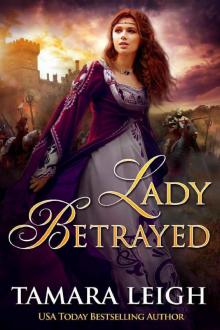 Lady Betrayed
Lady Betrayed Merciless
Merciless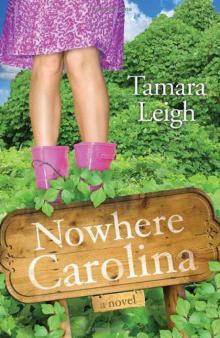 Nowhere, Carolina
Nowhere, Carolina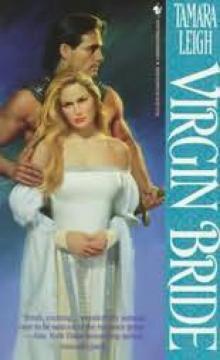 Virgin Bride
Virgin Bride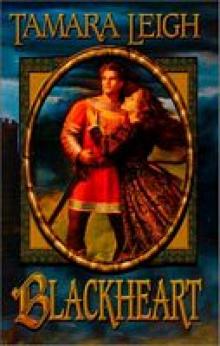 Blackheart
Blackheart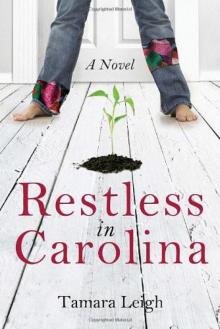 Restless in Carolina
Restless in Carolina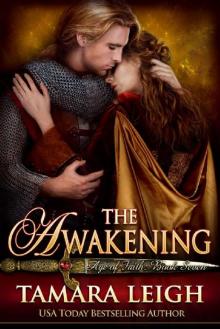 THE AWAKENING_A Medieval Romance
THE AWAKENING_A Medieval Romance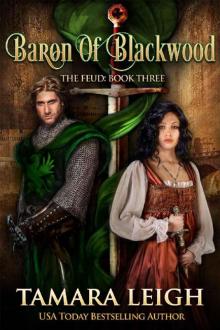 Baron of Blackwood
Baron of Blackwood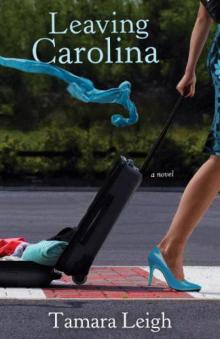 Leaving Carolina
Leaving Carolina HEARTLESS: A Medieval Romance (Age of Conquest Book 4)
HEARTLESS: A Medieval Romance (Age of Conquest Book 4)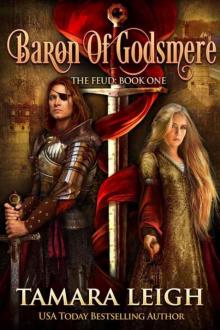 Baron of Godsmere
Baron of Godsmere Lady Of Eve
Lady Of Eve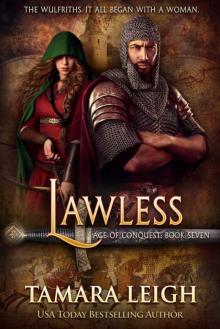 LAWLESS: A Medieval Romance (AGE OF CONQUEST Book 7)
LAWLESS: A Medieval Romance (AGE OF CONQUEST Book 7)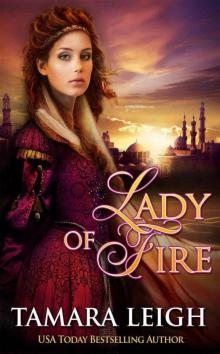 Lady Of Fire AKA Pagan Bride
Lady Of Fire AKA Pagan Bride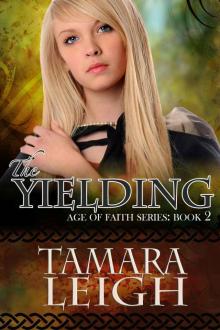 The Yielding (Age of Faith)
The Yielding (Age of Faith)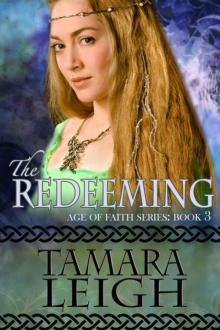 The Redeeming: Book Three (Age of Faith)
The Redeeming: Book Three (Age of Faith)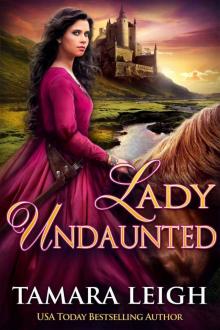 LADY UNDAUNTED: A Medieval Romance
LADY UNDAUNTED: A Medieval Romance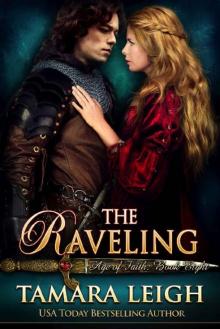 THE RAVELING: A Medieval Romance (Age of Faith Book 8)
THE RAVELING: A Medieval Romance (Age of Faith Book 8)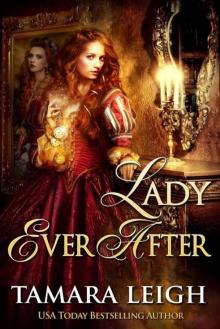 LADY EVER AFTER: A Medieval Time Travel Romance (Beyond Time Book 2)
LADY EVER AFTER: A Medieval Time Travel Romance (Beyond Time Book 2)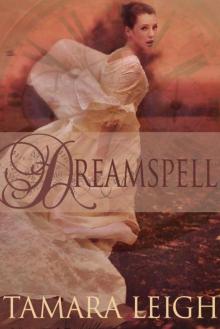 Dreamspell
Dreamspell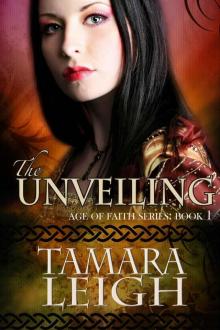 The Unveiling (Age of Faith)
The Unveiling (Age of Faith)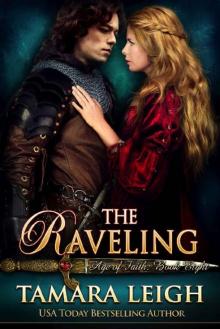 THE RAVELING
THE RAVELING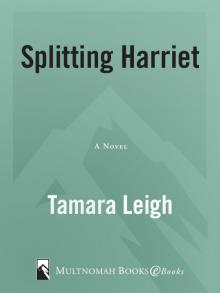 Splitting Harriet
Splitting Harriet Age of Faith 4 - The Kindling
Age of Faith 4 - The Kindling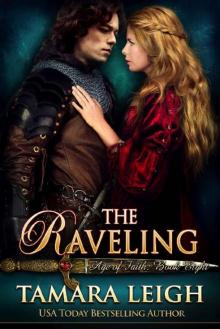 THE RAVELING_A Medieval Romance
THE RAVELING_A Medieval Romance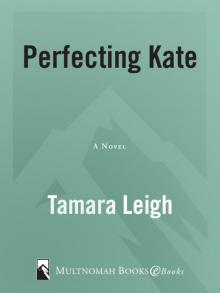 Perfecting Kate
Perfecting Kate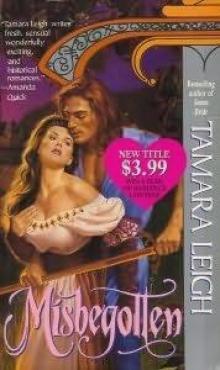 Misbegotten
Misbegotten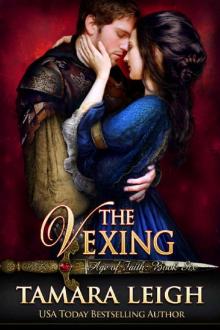 THE VEXING: A Medieval Romance (AGE OF FAITH Book 6)
THE VEXING: A Medieval Romance (AGE OF FAITH Book 6)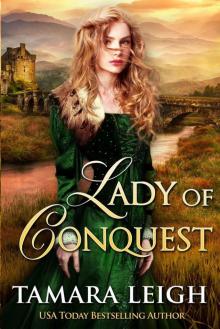 LadyOfConquest:SaxonBride
LadyOfConquest:SaxonBride